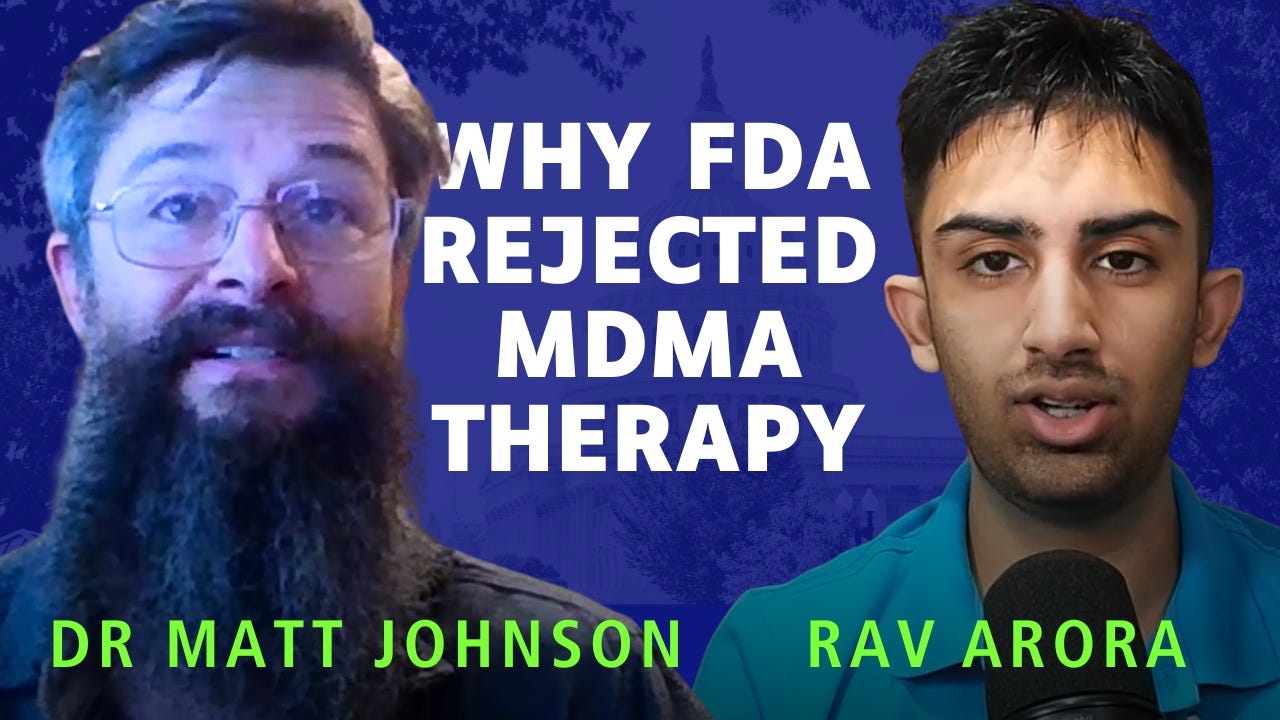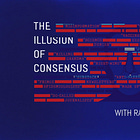Released: FDA's Rejection of MDMA Therapy Application Revealed with Dr. Matt Johnson
In this episode of the Illusion of Consensus podcast, Dr. Matt Johnson and I discuss the recent FDA decision regarding MDMA therapy for PTSD. The conversation covers the FDA's commitment to transparency in drug approval processes, the specific concerns raised in the rejection of MDMA therapy, and the implications for future psychedelic treatments. Dr. Johnson emphasizes the need for a fair evaluation process and the potential benefits of MDMA therapy compared to traditional SSRIs, while also addressing the importance of understanding the durability of treatment effects and the biases present in clinical trials.
Chapters:
00:00 Introduction to Psychedelic Research and FDA Transparency
02:39 FDA's Rejection of MDMA Therapy: Key Concerns
04:55 Exploring the FDA's Feedback on MDMA Therapy
12:18 Durability of MDMA's Effects in PTSD Treatment
16:59 Comparing MDMA Therapy to SSRIs for PTSD
20:51 Effect Sizes and Future of Psychedelic Treatments
28:38 MDMA Use and Treatment Efficacy
32:02 Pre-Screening and Selection Bias in Trials
34:38 Durability of Treatment Effects
36:32 Long-Term Efficacy and Safety of SSRIs
39:29 Societal Factors in Mental Health Treatment
42:43 The Role of Psychedelics in Therapy
46:50 Future of Psychedelic Therapy and FDA Regulations
Spotify link:
Apple link:
Substack video link:






For what it's worth it seems like the submission was a little optimistic. My dad is QA director at lot of startups over many decades in the bay area and he's the police on them doing trials and making sure they're doing it right before submitting to fda. he's seen lots of failures, he blames some on the company being lazy or not doing their homework.
asked ai to evaluate lykos and this was interesting to read. i think a lot of interesting things can come if it's done rightly but I liked reading this since I have an idea of what fda approval process looks like and what is a sensible right thing to do
https://g.co/gemini/share/f1466bca5b4e
Quotes from the gemini convo I had:
>>> ✅ Conclusion: A Verdict on the Submission
To use your father's terms, this was not the submission of a mature pharmaceutical developer. It was the submission of a passionate research institute that lacked the experience and skepticism to turn its promising findings into a regulatory-grade package.
...
Was it reasonable given their goal? No. Given their goal of achieving a landmark approval for a controversial substance, their submission should have been more rigorous and self-critical than a standard NDA, not less. They needed to anticipate every possible criticism and have data to counter it. Instead, they presented flawed data and hoped the severity of PTSD and the large effect size would be enough to carry them across the finish line.
...
> earlier paragraph:
Expert Analysis: This is the most damning evidence against the submission's quality. In drug development, you must systematically and proactively search for negative outcomes. Failing to do so looks like you are either sloppy or, worse, intentionally avoiding bad news. For the FDA, the absence of evidence is not evidence of absence; it's a red flag that your data collection is unreliable.
====
My last thoughts: I trust there's a lot of great promising stuff in things like mdma, but apart from problems with the FDA even without those, there are reasonable expectations to address known potential issues, and if someone is too optimistic and pretends big concerns don't even need to be addressed, then that's a red flag.
Should it have been denied or approved? That's a different question. Hopefully sharing excerpts from this is helpful rather than just reading headlines and knowing what you want to happen. ✌️